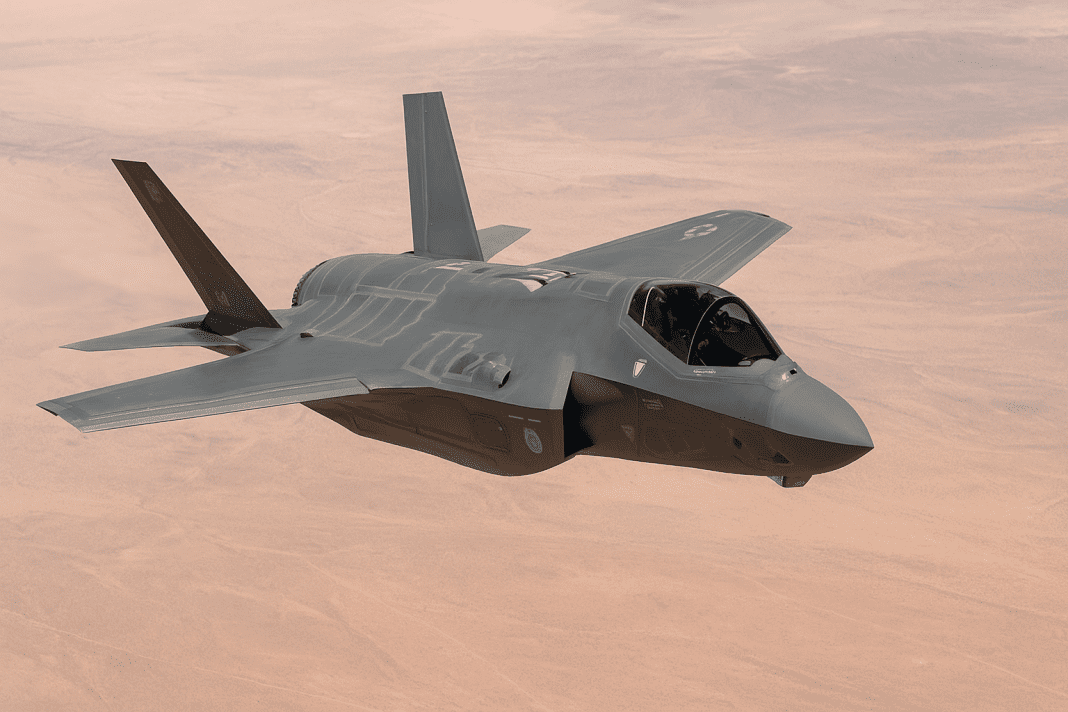Talks between the United States and Saudi Arabia over the purchase of advanced F-35 fighter jets have drawn major attention across the Middle East. The discussions, valued at several billion dollars, aim to strengthen Saudi Arabia’s air defense system and deepen its military partnership with the United States. The plan would allow Saudi Arabia to acquire around 48 F-35 jets, one of the most advanced aircraft ever built.
A Major Defense Deal in the Making
The F-35 is known for its cutting-edge technology. It can fly long distances, avoid radar detection, and carry powerful weapons. These jets give their owners a major advantage in air combat. Only a few countries in the world currently operate them, including the United States, the United Kingdom, and Israel.
The United States government, however, has not yet given final approval to the Saudi Arabia deal. Before the agreement can move forward, it must be approved by multiple bodies — including the U.S. administration, the president, and Congress. This process is designed to ensure that advanced military technology does not fall into the wrong hands or destabilize sensitive regions.
For Saudi Arabia, this deal is more than just a purchase. It represents a broader plan to modernize its military and secure its borders. The kingdom has long been seeking high-end defense systems to protect itself from growing threats in the region. Officials in Saudi Arabia have repeatedly said that their goal is to defend their nation, not to threaten others.
Israel voices concern over Saudi Arabia F-35 deal talks
The possible sale of advanced F-35 fighter jets to Saudi Arabia has stirred strong concern in Israel, which has long maintained what is known as a “qualitative military edge” in the Middle East. This edge means Israel’s air force has remained more advanced than any neighboring country, a key factor in ensuring its security and deterrence.
Israel fears that granting Saudi Arabia access to the F-35 could upset that balance. Although relations between the two nations have improved in recent years, deep mistrust persists. Israeli officials worry that sensitive U.S. technology in the jets could leak to countries like China, Russia, or Iran if shared or copied. Such leaks could expose vital details about the aircraft’s stealth systems and targeting technology.
These concerns echo earlier debates from 2020 when the United States discussed selling F-35s to the United Arab Emirates under the Abraham Accords — a move that also faced pushback from Israel over regional security risks.
Reports suggest Israeli officials have voiced their unease directly to Washington, warning that supplying high-tech weapons to regional powers could erode Israel’s long-standing military advantage. Their concern is not about an immediate threat but the potential shift in regional dynamics that such sales could trigger in the future.
Beyond the security risks, Israel also views the deal as politically sensitive. A successful purchase by Saudi Arabia could signal U.S. favoritism and inspire other Middle Eastern nations to seek similar defense privileges, reshaping regional power balances.
Strategic Interests Behind Saudi Arabia–U.S. Negotiations
While Israel’s worries dominate the headlines, the United States and the kingdom view the proposed F-35 deal as part of a wider strategic plan. Washington aims to strengthen regional alliances to counter growing influence from China and Russia, and Riyadh — a major oil producer and leading Arab economy — is central to that strategy.
For the kingdom, owning F-35 jets would mark a major step in modernizing its military. It has long sought to upgrade defense systems and expand partnerships with multiple countries. Leaders in Riyadh see the jets as crucial for protecting borders and countering regional threats.
The United States faces a delicate balancing act. It values the Gulf nation as a key ally but must also safeguard Israel’s long-standing military edge in the Middle East. U.S. officials are reportedly planning to impose strict conditions on the deal, setting rules on jet usage and banning the transfer of related technology to other nations.
Hezbollah seeks to restore relations with Saudi Arabia amid escalating strikes in Lebanon
Analysts say these safeguards mirror the rules the United States placed on previous arms agreements with its allies. Still, the potential sale shows how deeply security and politics intertwine across the Middle East.
Israel, Iran, Russia, and China are all closely watching every move in these talks, each seeking to protect its interests in the region’s shifting balance of power. Though approval from U.S. authorities is still pending, the mere idea of Saudi Arabia acquiring F-35s has already reshaped discussions on defense and trust across the Middle East.
